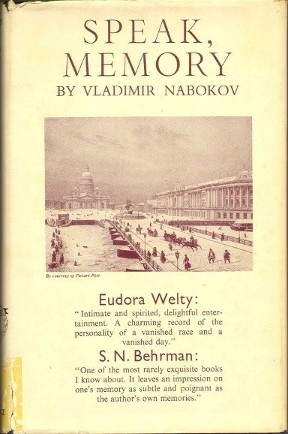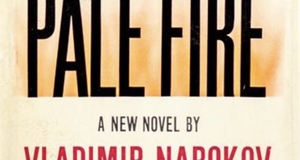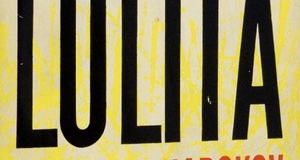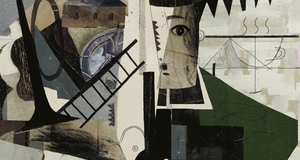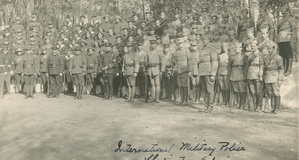The 1905 Russian Revolution through the Eyes of Vladimir Nabokov in Speak, Memory
By
2011, Vol. 3 No. 01 | pg. 1/1
KEYWORDS:
The insight that Vladimir Nabokov provides into the 1905 Russian Revolution, in his book Speak, Memory, sometimes merges with the general view--presented, for example, by Nicholas V. Riasanovsky in a more traditional account--but at many other times is totally unique, a product of Nabokov’s personal observations. Many of the causes that determined the 1905 Russian Revolution are presented in Nabokov’s novel. One of these is industrialization, which occurred at a rapid pace: “In the early years of this century, a travel agency on Nevski Avenue displayed a three-foot-long model of an oak-brown international sleeping car.... One could make out the blue upholstery inside, the embossed leather lining of the compartment walls, their polished panels, inset mirrors, tulip-shaped reading lamps, and other maddening details. Spacious windows alternated with narrower ones... and some of these were of frosted glass.... The then great and glamorous Nord-Express... connected St Petersburg with Paris.”1 This industrialization, which grew apace under Witte’s supervision2, was accompanied by a proportionate decrease in the living conditions of industrial workers, who were enduring “overcrowded housing with often deplorable sanitary conditions, an exhausting workday... widespread disease... constant risk of injury from poor safety conditions, harsh workplace discipline, and inadequate wages.”3 All of this could only spread resentment towards the government and the Tsar, helping form a perfect arena for revolutionary ideas, notably Marxism4. However, these details are not dwelled upon by Nabokov, who gives only a glimpse of the luxurious results of this trying process. In addition, the author presents the poverty and desperation that plagued the countryside: “fatal poverty and fatalistic wealth got fantastically interwoven in that strange first decade of our century. Several times during the summer... the butler, with an unhappy expression on his face, would bend over and inform my father in a low voice... that a group of villagers wanted to see the barin outside.... It presumably had to do with a plea for his mediation of some local feud, or with some special subsidy, or with the permission to harvest some bit of our land or cut down a coveted clump of our trees. If, as usually happened, the request was at once granted, there would again be that buzz, and then... the good barin would be... rocked and tossed up and securely caught by a score or so of strong arms”5.
1st edition cover of Speak, Memory by Vladimir Nabokov. Nabokov learns of the problems in the country from the village schoolmaster, as well, who “took us [the author and his brother] for instructive walks (‘What you hear is the sound of scythe being sharpened’; ‘That field there will be given a rest next season’; ‘Oh, just a small bird-no special name’; ‘If that peasant is drunk, it is because he is poor’)”6. Through Vasiliy Martinovich Zhernosekov (the school master) one can see as in a realistic painting, the changes happening in the countryside, the liberal and revolutionary ideas that penetrate the villages. The schoomaster is one of those “fiery revolutionaries,” maybe one of the 3rd elements, who “would gesture vehemently on our country rambles and speak of humanity and freedom and the badness of warfare and the sad (but interesting, I thought) necessity to blowing up tyrants, and sometimes he would produce the then popular pacifist book Doloy Oruzhie!... and treat me, a child of six, to tedious quotations”7. However, the rise of the Social Democrats and their more radical factions are not mentioned; only the end result, the Bolshevik Revolution, is mentioned again and again. Another major problem was the Russo-Japanese war8. At Abbazia (at the Adriatic Sea), in a café, his father sees two Japanese officers at a table nearby “and we immediately left-not without my hastily snatching a whole bombe of lemon sherbet, which I carried away secreted in my aching mouth. The year was 1904. I was five. Russia was fighting Japan”9. English newspapers, of which Nabokov gives the example of the one his governess, Miss Norcott, received, illustrated Japanese cartoons of Russian locomotives drowning as a threat “if our Army tried to lay rails across the treacherous ice of Lake Baikal”10. The war was in the attention of Europe. However, Nabokov sees the war only through a child eyes, to whom General Kuropatkin the movement of the sea with some matches just before he is called “to assume supreme command of the Russian army in the Far East”11. Only later on, as an adult, Nabokov acknowledges that the war ended disastrously: “his [General Kuropatkin’s] armies also vanished, and everything has fallen through, like my toy trains that, in the winter of 1904-1905, in Wiesbaden, I tried to run over the frozen puddles in the grounds of the Hotel Oranien”12. Nonetheless, the problems did not stop there. Nabokov’s father’s (Vladimir Dmitrievich Nabokov) brief biography, illustrates further the problems that led to the Revolution of 1905: the pogroms (an example that Nabokov gives is the one in Kishinev in 190313), which are noted by the liberal aristocrats, to which Nabokov’s father pertains. He writes about the pogrom in Kishinbev, thus losing his court title “in January 1905, after which he severed all connexion with the Tsar’s government and resolutely plunged into antidespotic politics”14. This shows another major, probably essential issue that brings about the Revolution of 1905: the Tsar is estranged from his own class-the aristocrats. Nabokov’s father “at an official banquet in 1904... refused to drink the Tsar’s health”15. This note probably alludes to the “banquet campaigns” which were staged by the liberals “featuring fervent speeches and resolutions calling for democratizing political change”.16 It is also a clear example of the gap between some of the members of the aristocracy and the Tsar. In the wake of 1905, political meetings were illegal, and they would frequently be held in secret at the house of one or another, in this case Nabokov’s father’s house estate at Vyra: “he had to attend many committee meetings, and these were often held at our house17. Thus, up to this point, the Tsar and his government gathered the workers, the peasants and the aristocrats against themselves, creating a perfect context for a revoltuin. A telling episode is the involving Nabokov’s cousin, Yuri, who in 1904 was “coming out of a souvenir shop and running toward me with a breloque, an inch-long little pistol of silver, which he was anxious to show me-and suddenly sprawling on the sidewalk but not crying when he picked himself up, unmindful of a bleeding knee and still clutching his minuscule weapon”18. In some ways, Yuri’s gesture is the one that the whole Russia is doing: rising up, beaten and worked as it is, to ask for a change, and not releasing the weapon at any cost, feeling that it is the last resort in this battle with its own government. The consequences to all the problems enumerated above, and seen through the eyes of a child, were “furious internal disorders”. Nabokov’s mother is “undaunted by them” and returns after “a year of foreign resorts”19, namely Beaulieu, Abbazia and Wiesbaden20, to Russia. This return was happening “in the beginning of 1905,” just as the Revolution starts. It is a perfect example of a scene of the countryside, which was not as affected by the bloody revolution as the cities were. Amidst the revolution, “a large woman, a very stout woman, Mademoiselle rolled into our existence in December 1905 when I was six and my brother was five”21. Indeed this serene, tranquil country life, dominated by the image of a French governess, is contrasted with the cities’ 1905 “a year of strikes, riots and police-inspired massacres, and I suppose my father wished to keep his family away from the city... where his popularity with the peasants might mitigate, as he correctly surmised, the risks of unrest”22. In Moscow, the trees in Maria Square witnessed “children shot down at random from the branches into which they had climbed in a vain attempt to escape the mounted gendarmes who were quelling the First Revolution (1905-1906)23. These gruesome scenes (which the author emphasizes that were not singular at all24) go beyond what is usually present in history textbooks (general strikes and police shooting at petitioners and workers25) and portray the revolution’s violence and the government’s injustice. In contrast to his mother, Nabokov’s father is in the middle of the revolution: he goes to Moscow, being one of the founders of the Constitutionalist Democratic Party, and upon his return, he wants his sons to learn Russian and asks the village schoolmaster to teach them26. This shows not only Nabokov’s father’s patriotism (“he ascertained, with patriotic dismay, that my brother and I could read and write English but not Russian”27) but also is a way to introduce his liberalism and protectorate over education: the schoolmaster “revered my father who had recently rebuilt and modernized the village school”28. This glimpse into his father’s activities is also a way to enter the world of the liberals and their newly formed (in 1905) Constitutionalist Democratic Party (or Cadet), after putting the bases of the Union of Liberation, in 190329. This activity of Vladimir Dmitrievich Nabokov is not surprising at all, put in the context that his son puts it. The author’s grandfather, Dmitri Nikolaevich Nabokov, had been Minister of Justice in the time of Alexander III, and Nabokov confesses that his grandfather “did what he could to protect, if not strengthen, the liberal reforms of the sixties (trial by jury, for instance) against ferocious reactionary attacks”30 (pg. 40). His legacy went on to his descendants, especially Nabokov’s father (although Nabokov’s grandmother, Baroness Maria von Korff, opposed it, seeing in the upcoming revolution a disintegration of her class31) and uncle Konstantin, who entered diplomacy and was the protagonist of an incident in “Moscow, on 17 February 1905, when an older friend, the Grand Duke Sergey, half a minute before the explosion, offered him a lift in his carriage, and my uncle said no, thanks, he’d rather walk, and away rolled the carriage to its fatal rendezvouz with a terrorist’s bomb”32. This episode not only emphasizes the long history of liberalism and political life in Nabokov’s family but also portrays lesser known moments of the revolution of 1905, like the assassination of the Grand Duke Sergey Alexandrovich, the Tsar’s uncle by revolutionary terrorist33. Uncle Konstantin was not the only one of Nabokov’s uncles to enter diplomacy: his mother’s brother, Vasiliy Ivanovich Rukavisnikov34 was another one, although about his activities neither Nabokov, nor his family, seem to have known much. In Speak, Memory, Nabokov gives a frugal look into the 1905 Russian Revolution and its causes, dwelling on the issues he was most familiar with, like the peasants' pleas, the organizations and activities of the liberal aristocrats an the Russo-Japanese war, and less so into the situation of the workers. But in doing so, he also gives us precious details, that history books do not always record; the look and feel of industrialization, the luxury of life in the countryside, despite the problems raging throughout the country, the continuous Westernization of the aristocratic class as well as their professed patriotism, and the personal touch of all the events, such as the realistic and human portrait of the commander in chief of the Russian army. Lastly, it gives details of the 1905 Russian Revolution that show it in all its grotesque and violence, extended from the revolutionaries in the streets, to innocent children, and to the members of the royal family. In this, Nabokov tells us that the 1905 Russian Revolution involved everybody and forgave nobody. ReferencesAlexy, Archbishop of Orekhovo-Zuevskij. “The Grand Duke Sergei Alexandrovich.” Spasnanovom. Novospassky Monastery, http://www.spasnanovom.ru/330105. Nabokov, Vladimir. Speak, memory. New York: Alfred A. Knopf, 1999. Riasanovsky, Nicholas V. and Steinberg, Mark D. A History of Russia. 7th ed. New York: Oxford University Press, 2005. Endnotes1.) Vladimir Nabokov, Speak, Memory (New York: Alfred A. Knopf, 1999), 107. 2.) Nicholas V. Riasanovsky and Mark D. Steinberg, A History of Russia, 7th ed. (New York: Oxford University Press, 2005), 398-399. 3.) Ibid., 408-409. 4.) Ibid., 409-410. 5.) Vladimir Nabokov, Speak, Memory (New York: Alfred A. Knopf, 1999), 18-19. 6.) Ibid., 71. 7.) Ibid., 17. 8.) Nicholas V. Riasanovsky and Mark D. Steinberg, A History of Russia, 7th ed. (New York: Oxford University Press, 2005), 373-374. 9.) Vladimir Nabokov, Speak, Memory (New York: Alfred A. Knopf, 1999), 15. 10.) Ibid., 15. 11.) Ibid., 15. 12.) Ibid., 16. 13.) Ibid., 134. 14.) Ibid., 134. 15.) Ibid., 134. 16.) Nicholas V. Riasanovsky and Mark D. Steinberg, A History of Russia, 7th ed. (New York: Oxford University Press, 2005), 379. 17.) Vladimir Nabokov, Speak, Memory (New York: Alfred A. Knopf, 1999), 144. 18.) Ibid., 152. 19.) Ibid., 16. 20.) Ibid., 70. 21.) Ibid., 70. 22.) Ibid., 72. 23.) Ibid., 142. 24.) Ibid., 142. 25.) Nicholas V. Riasanovsky and Mark D. Steinberg, A History of Russia, 7th ed. (New York: Oxford University Press, 2005), 380-381. 26.) Vladimir Nabokov, Speak, Memory (New York: Alfred A. Knopf, 1999), 16. 27.) Ibid., 16. 28.) Ibid., 17. 29.) Nicholas V. Riasanovsky and Mark D. Steinberg, A History of Russia, 7th ed. (New York: Oxford University Press, 2005), 378. 30.) Vladimir Nabokov, Speak, Memory (New York: Alfred A. Knopf, 1999), 40. 31.) Ibid., 119. 32.) Ibid., 42. 33.) Alexy, Archbishop of Orekhovo-Zuevskij, “The Grand Duke Sergei Alexandrovich,” Spasnanovom. Novospassky Monastery, http://www.spasnanovom.ru/330105. 34.) Vladimir Nabokov, Speak, Memory (New York: Alfred A. Knopf, 1999), 50-51. Suggested Reading from Inquiries Journal
Inquiries Journal provides undergraduate and graduate students around the world a platform for the wide dissemination of academic work over a range of core disciplines. Representing the work of students from hundreds of institutions around the globe, Inquiries Journal's large database of academic articles is completely free. Learn more | Blog | Submit Latest in Literature |

